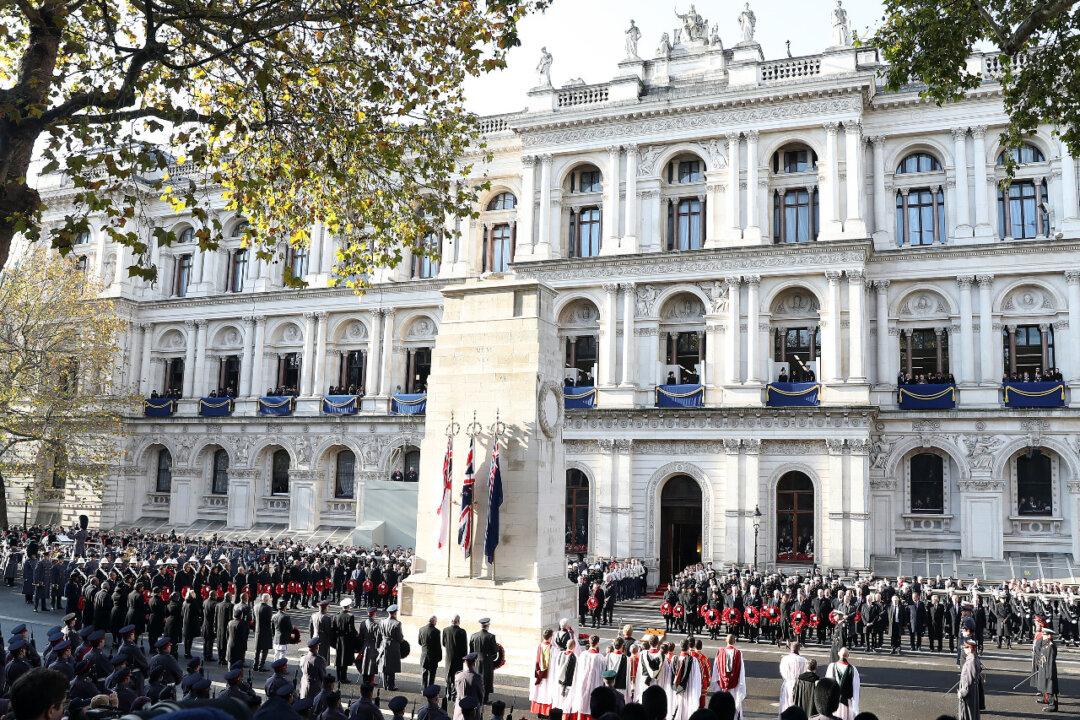The government has asked the British public not to gather at the Cenotaph in London on Remembrance Sunday this year due to the ongoing CCP virus pandemic.
In a media release on Thursday, the government said the Nov. 8 National Service of Remembrance to remember the country’s servicemen and women and those who gave their lives to defend their country will not be open to the public for the “first time in history.”





